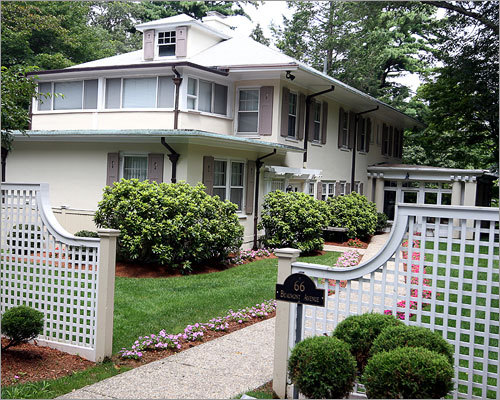This post is part of a series that addresses the physical aspects of our campus, specifically the history and the current state of Brandeis University architecture and planning.
One of society’s ongoing problems is what to do with old buildings. Do we demolish them and build something new? Do we renovate and re-purpose them? If they’re particularly special, we might even restore them to their original state. Brandeis is no more immune to this problem than any city or town. In fact, college campuses may feel the pressures to demolish old buildings stronger than any other communities. Colleges depend on large donors to renew their facilities, and large donors want their names on fashionable new buildings.
For several weeks now, crews have been working at demolishing the Friedland Life Science building and the Kalman Pre-Medical Building. To my best knowledge, no one has made a fuss. I’m not a science student, but I’ve visited both of these buildings. Friedland was actually pretty quirky and interesting, with large white panels covering much of the exterior and short windows at the top of each floor, creating glass divisions between its five stories. I believe it was designed by firm of Shepley, Bulfinch, Richardson, and Abbott, which had some very famous founders.
Should we really treat buildings such as Friedland as disposable? I don’t think so. Sure, they’re not very much in style today, but someday we may come to regret losing them. Harvard’s now-loved Memorial Hall once faced the wrecking ball because 50-or-so years late it had fallen out of style. Sure, Friedland isn’t so grand, nor was it probably constructed so well, but it’s so… well, modern. It was of the era of the Space Race, and in my opinion it showed it.
Friedland isn’t the only building with a funky, modern style. Goldman-Schwartz? East? Spingold? Schwartz and Brown? All of these buildings have been deeply neglected over the years. Under the right conditions, any of these buildings could receive its death sentence. At Brandeis, we take the attitude that after a building goes up, it’s okay to leave it to decay forever. I urge Brandeis to treat its buildings with greater respect.
If you need reinforcement for what our ’50s and ’60s-era buildings could look like, visit the lobby of Gryzmish across from the campus center. Without daily wear from students, the interior has stayed fairly well preserved. Really, take a look. Once the examples of that style are destroyed, they will never come back in quite the same form.




